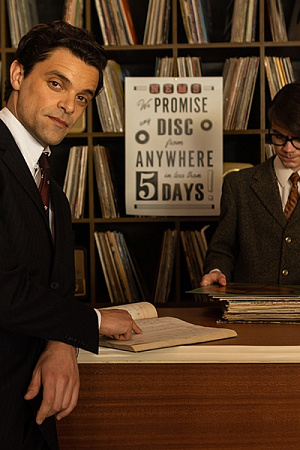Denial ★★★★
The opening scene is a stunner. David Irving (Timothy Spall), top of the pile of Holocaust deniers, is giving a lecture. He is framed by darkness, we do not see the audience. ‘I say to you quite tastelessly,’ he says, ‘that more women died on the back seat of Senator Edward Kennedy’s car at Chappaquiddick than ever died in a gas chamber at Auschwitz.’ Irving speaks earnestly and with authority; the camera, perched low, frames his torso and head from that same half side-on angle that Hitler’s photographers favoured. This is no skinhead speaking, no foul-mouthed, leather-clad neo-Nazi, this is a man straight out of British Establishment central casting, a courteous man who, even when saying the most appalling things, knows how to prepare the ground: I say to you quite tastelessly ...
David Irving, Holocaust denier, Hitler apologist, and at one time a respected historian, has been around for decades touting his abhorrent beliefs, long before 1993, when Deborah Lipstadt (Rachel Weisz), Professor of Modern Jewish and Holocaust Studies at Emory University in Atlanta, published Denying the Holocaust: The growing assault on truth and memory. In 1996, after the book was published in the United Kingdom, Irving filed a case in the English High Court against Penguin books (Lipstadt’s UK publishers) and Lipstadt herself. He accused her of writing about him in such a way that misrepresented his beliefs and undermined his reputation as an historian. Specifically, she had accused him of being racist and anti-Semitic, and had deliberately falsified evidence to support his thesis that there were no gas chambers, no Holocaust, and indeed no campaign to exterminate the Jews of Europe.
Continue reading for only $10 per month. Subscribe and gain full access to Australian Book Review. Already a subscriber? Sign in. If you need assistance, feel free to contact us.









Leave a comment
If you are an ABR subscriber, you will need to sign in to post a comment.
If you have forgotten your sign in details, or if you receive an error message when trying to submit your comment, please email your comment (and the name of the article to which it relates) to ABR Comments. We will review your comment and, subject to approval, we will post it under your name.
Please note that all comments must be approved by ABR and comply with our Terms & Conditions.